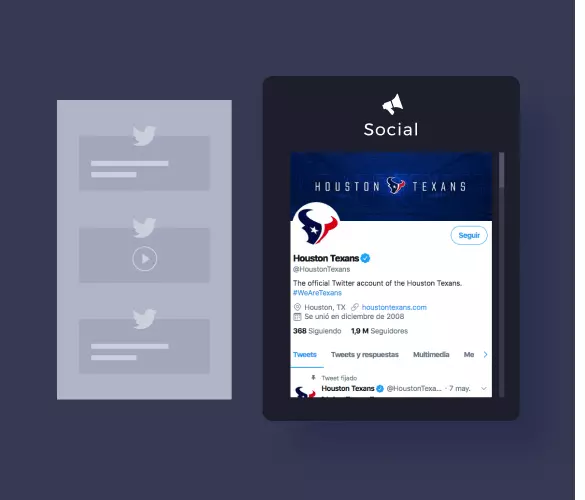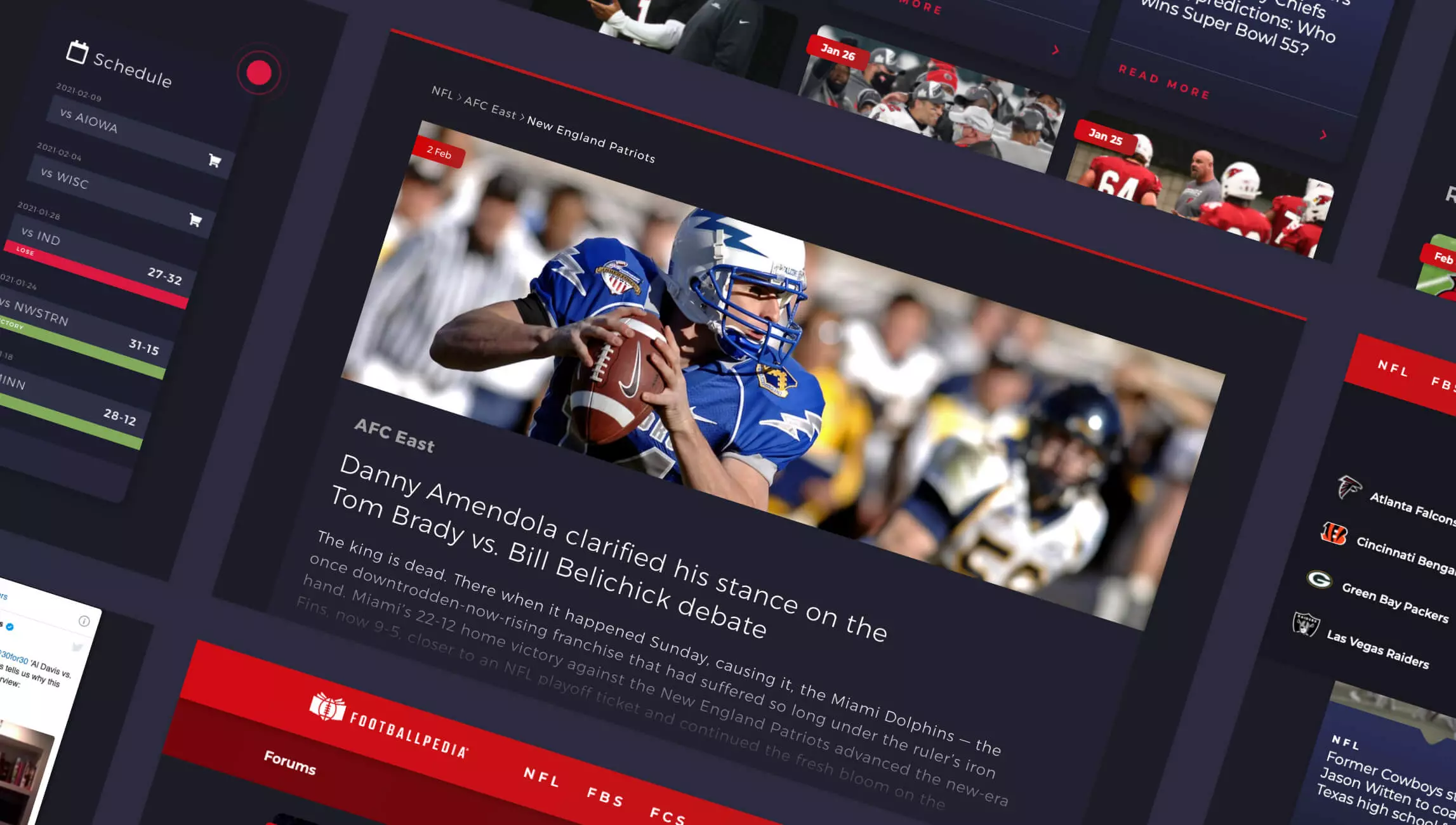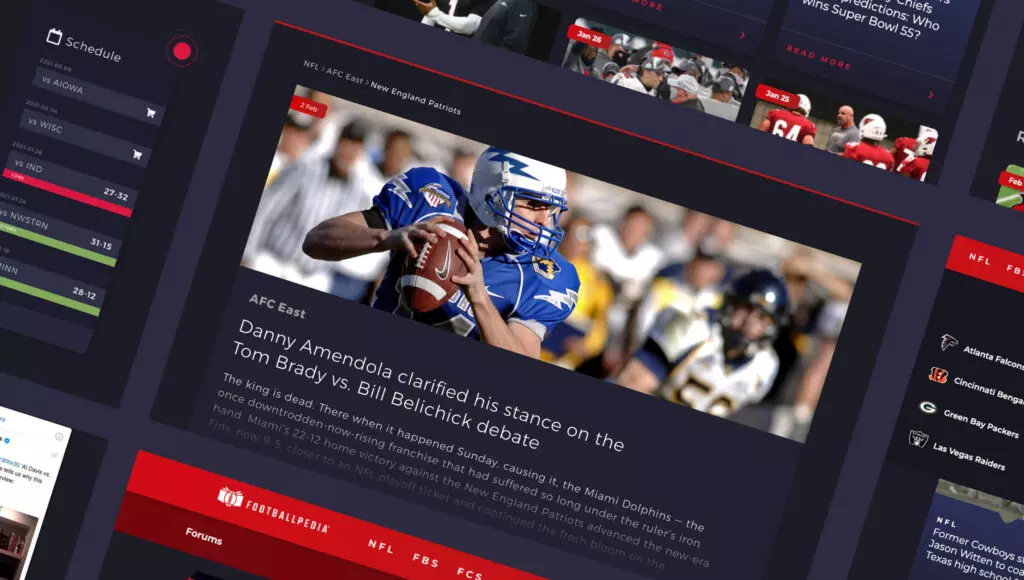Replicating the Success
But the magic of the modular system is that it can be spun up and reused almost indefinitely. We built a base template or structure which the client could customize freely and duplicate for different sites.
Sports fans can be really passionate. When it comes to their team, they don’t want to miss a single piece of news or updates.
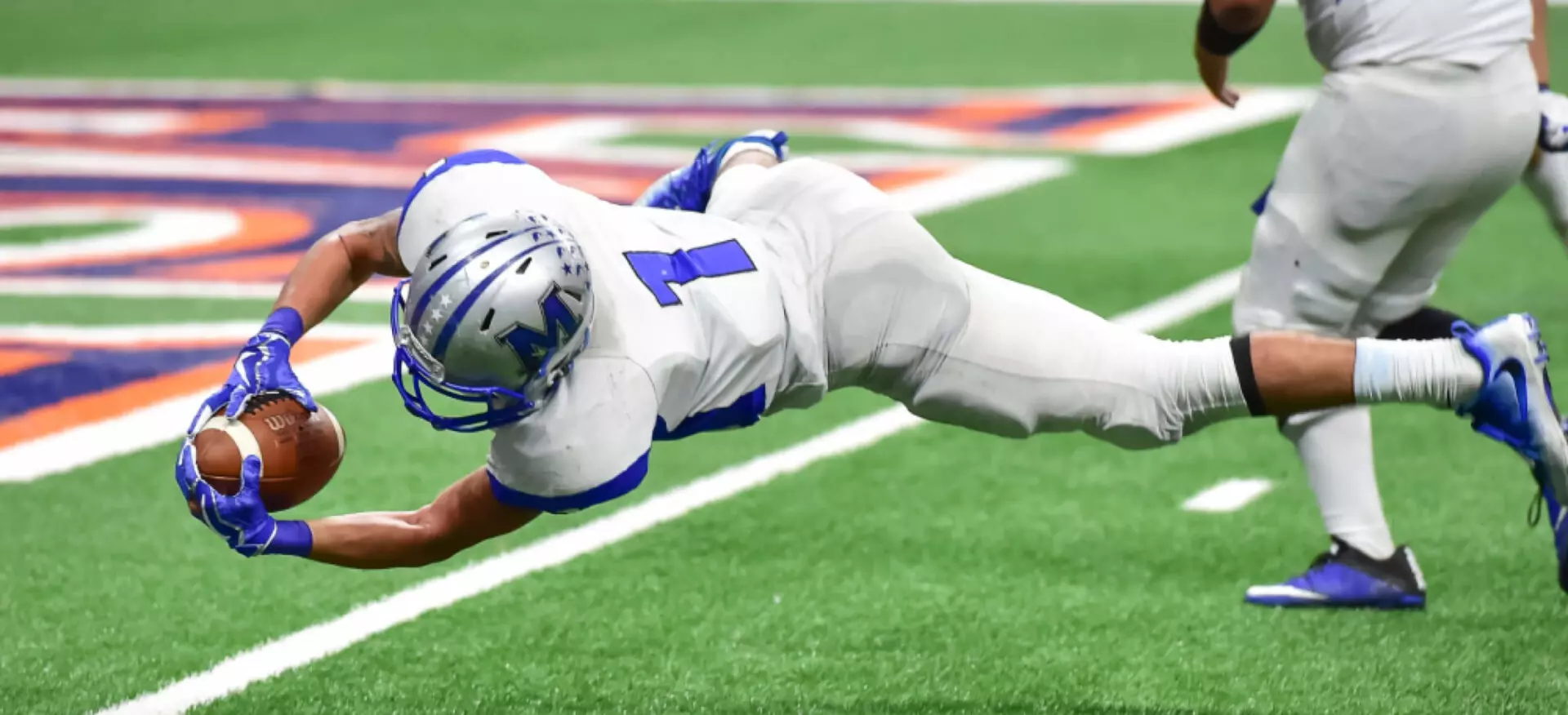

SportsPedia came up with the idea of a series of websites that centralize all sports-related news in one place.
Analysis, news, upcoming matches, formations, and more. From football to baseball or basketball.
They needed an amazing website template which they could replicate to create all sorts of sports news websites, expanding the SportsPedia brand.
The website needed to be flexible and reusable. But with 700+ teams, different leagues and 5000+ articles, it also needed an intuitive navigation.
Simple, but challenging: Build an adaptable website structure that would allow sports fans to find the news about their favorite teams in just a few clicks. Also, create a replicable base structure for all sorts of news sites
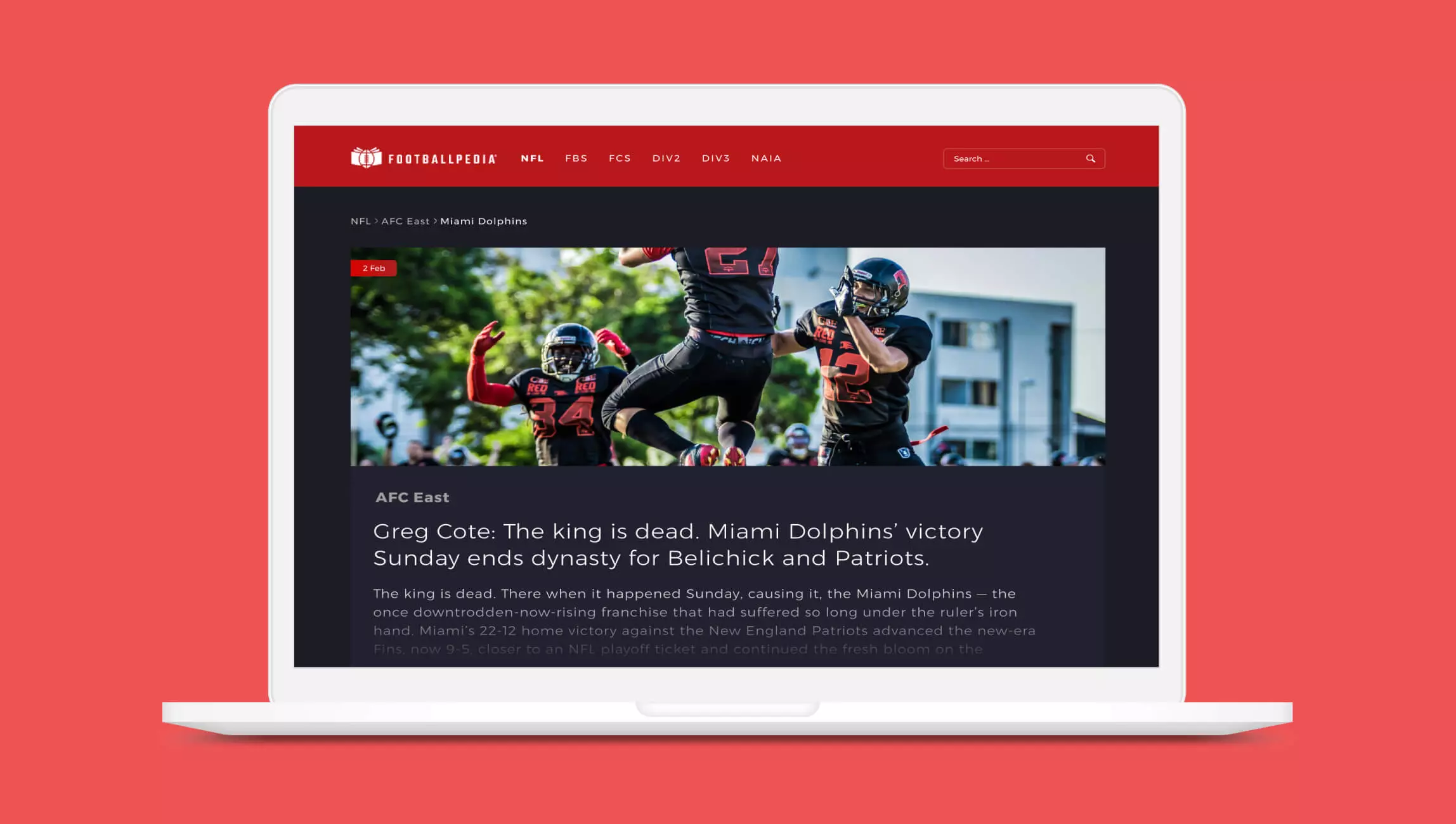
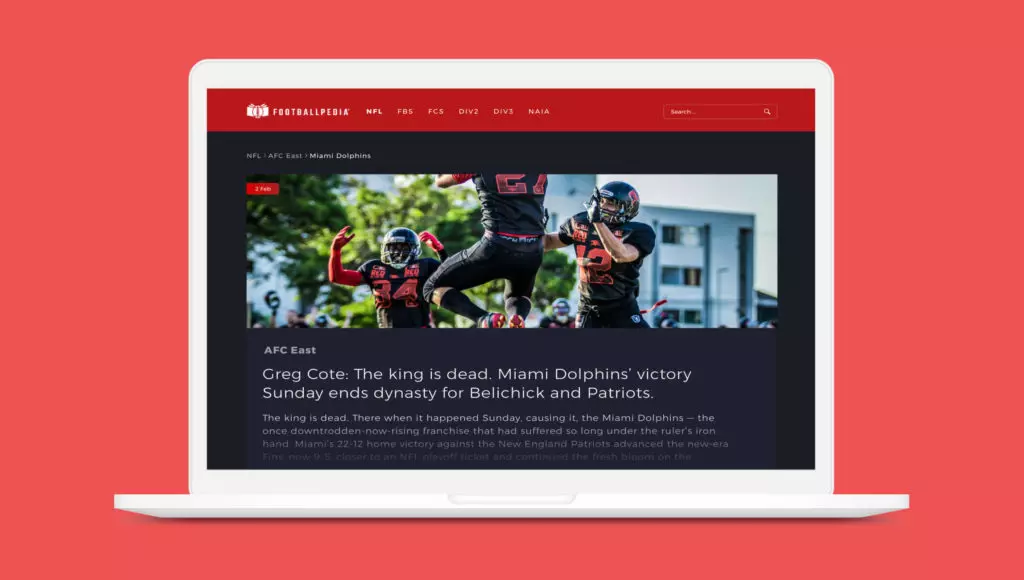
How could we classify the teams so that the users could find the one they are looking for and not get lost in the seas of information?
How could we incorporate all these data while also ensuring good navigation?
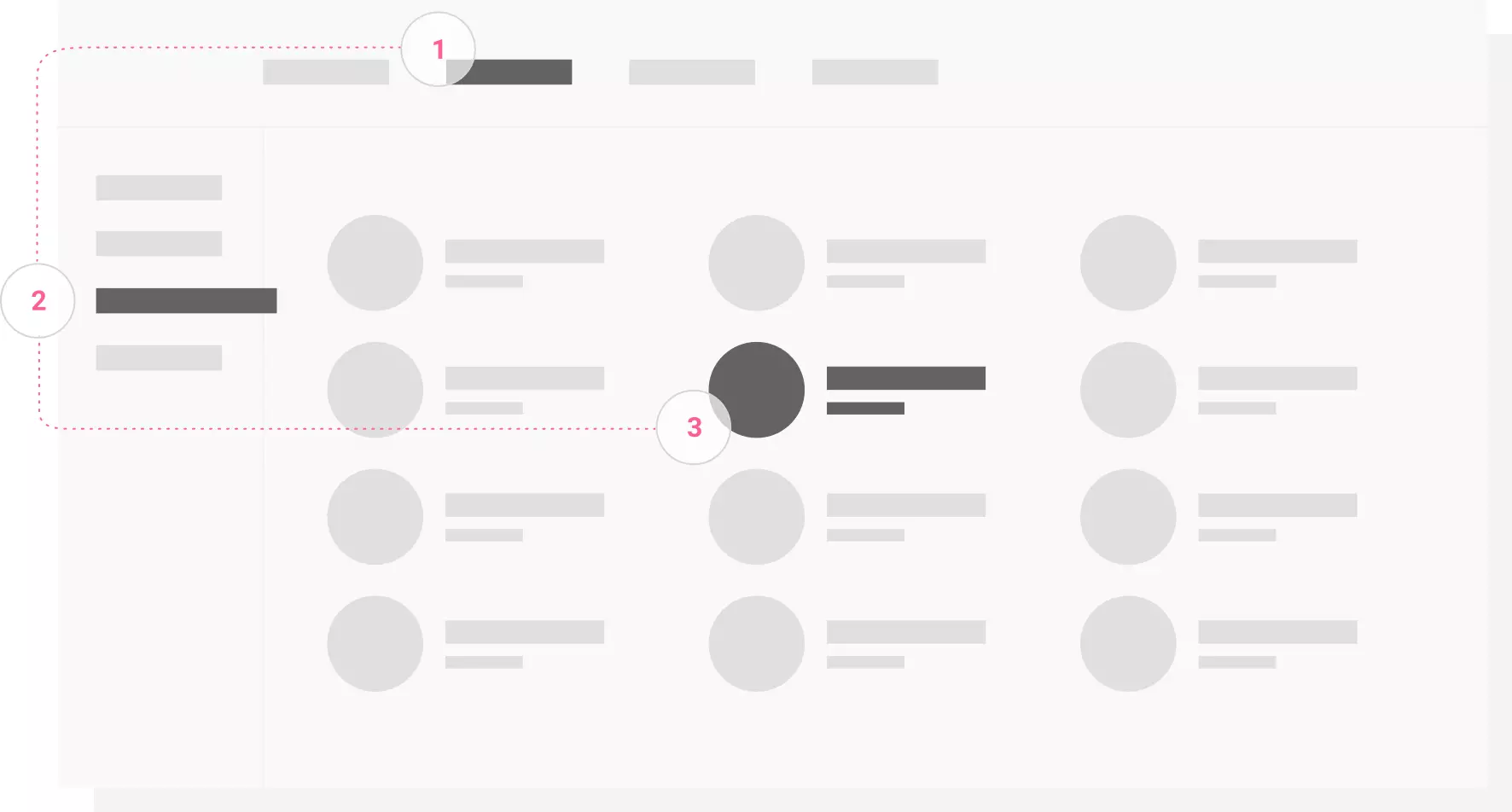
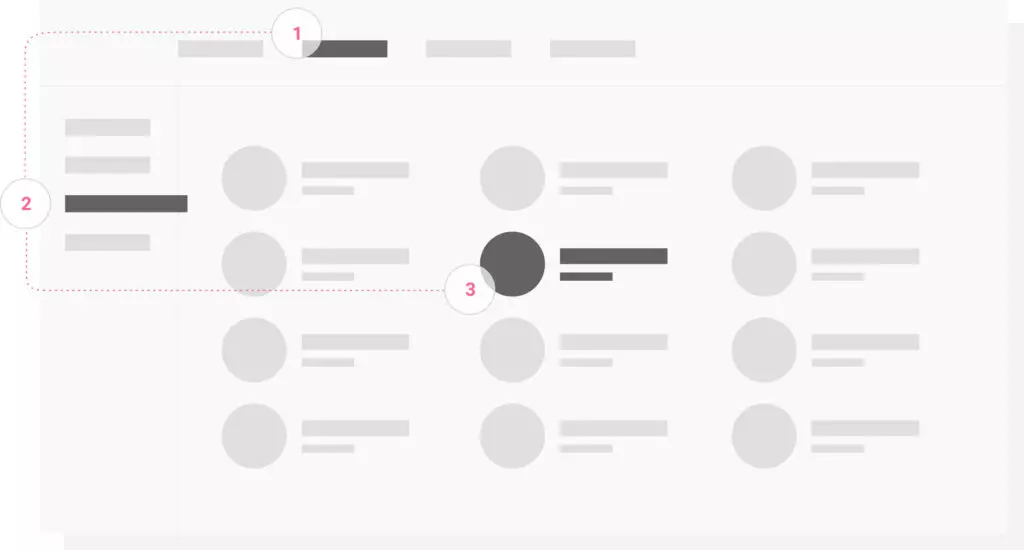
Navigation was the most important challenge of the SportsPedia project. The website required a concise, adaptable design with a focus on content to make the massive amounts of information digestible.
When dealing with so much information, we realized that a modular interface was the way to go. A modular interface consists of a system of components (or modules) that can be independently modified, replaced, or exchanged between different systems. By classifying the information into modules, it became a lot easier to navigate and digest.
But the magic of the modular system is that it can be spun up and reused almost indefinitely. We built a base template or structure which the client could customize freely and duplicate for different sites.
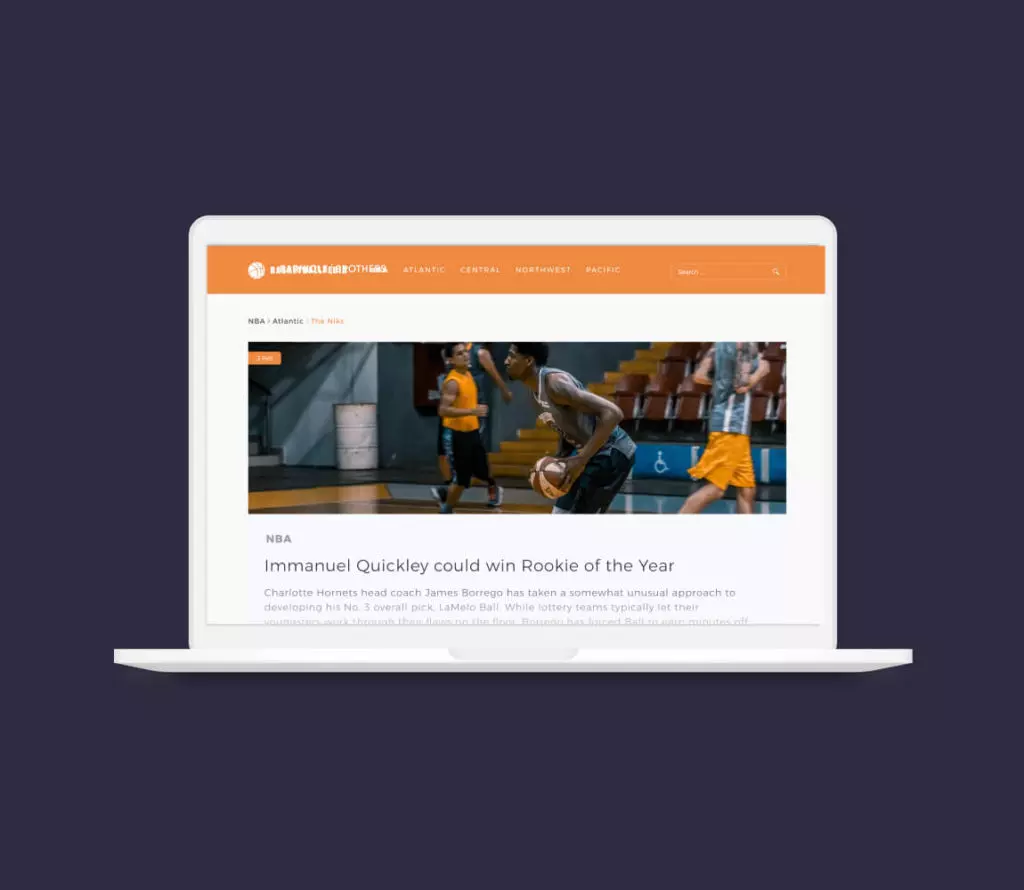
By changing the color palette and some other details, the template looks like a whole new website. This allows the client to use the same structure for all kinds of sports-related news sites: football, baseball, basketball – there are no limits!
The SportsPedia brand needed a design that could work and adapt correctly according to each website. We offered a solution consisting of multiple packages which adapt to the content and theme of each project.
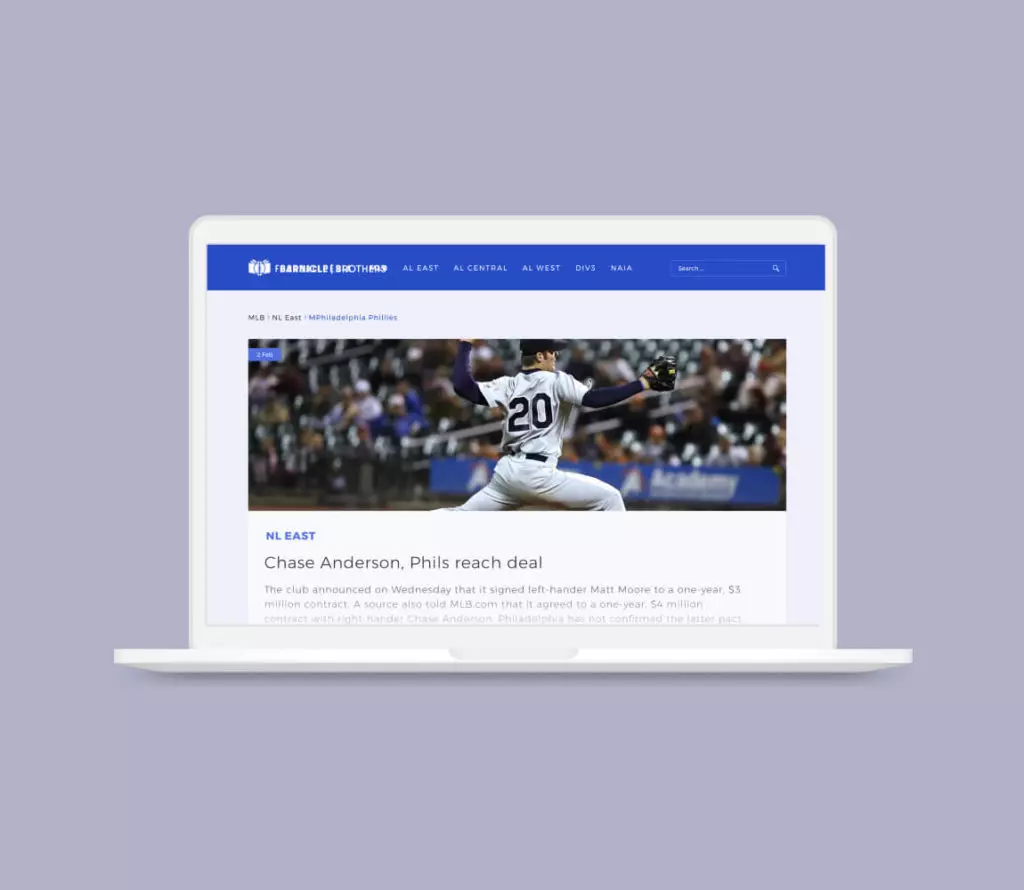
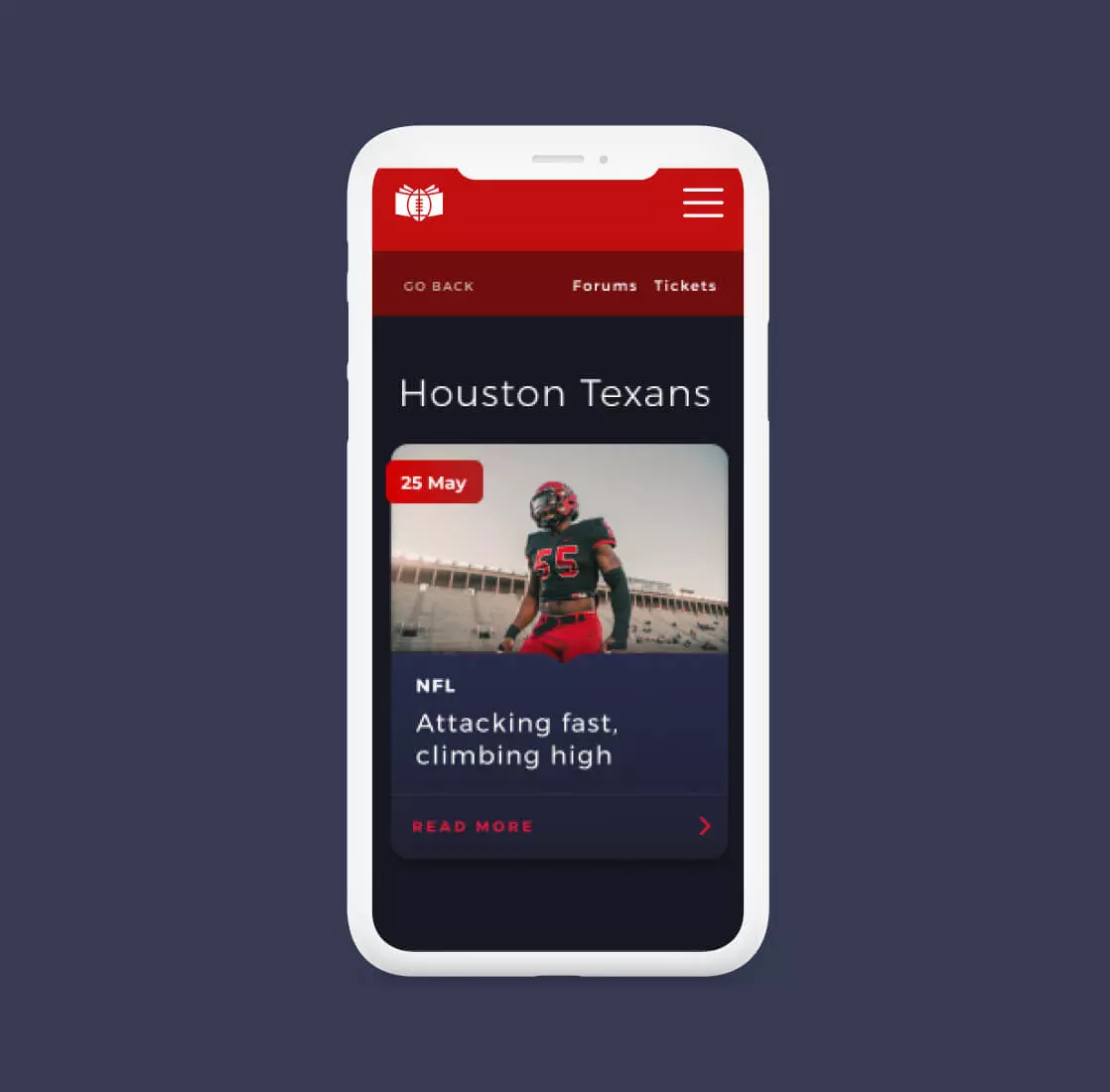
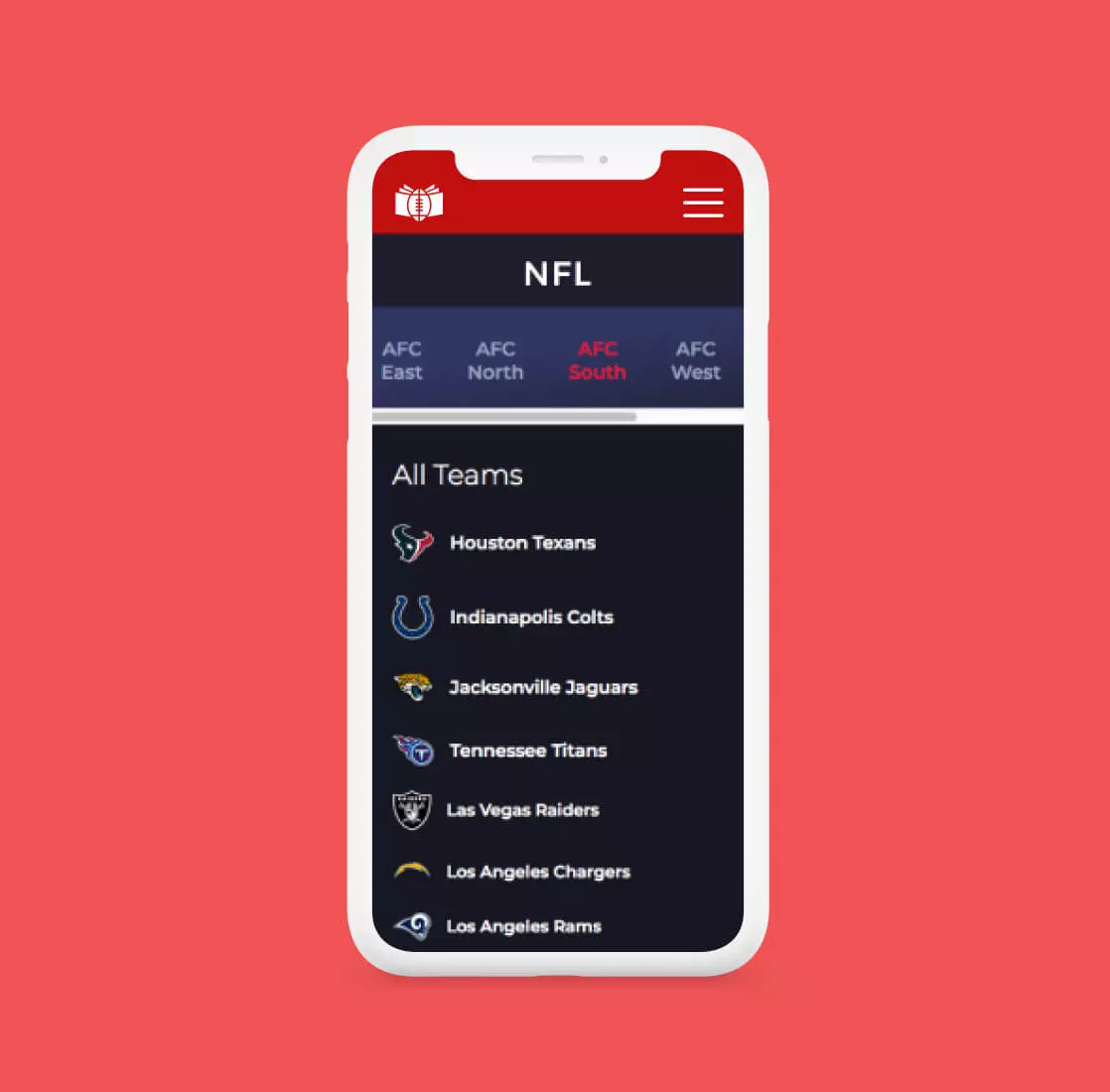
With the practically infinite number of articles that are published daily about each team, it became clear that it was impossible for a human being to update the website’s content manually. The news presented in the SportsPedia websites, therefore, is automatically generated by an integration we built into the site. It works by linking to the different websites where the content is originally published.
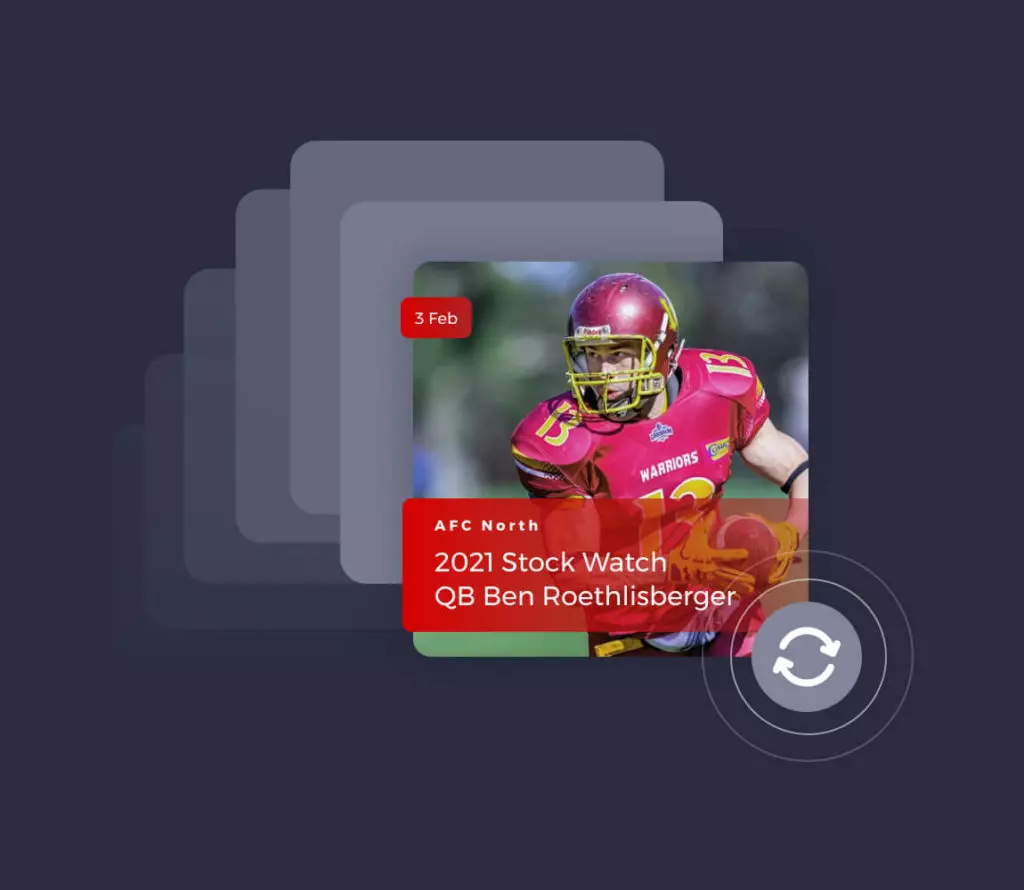
We also added a social media feed integration linked to the team’s official social media accounts to complement the news articles. Finally, the website had to be compatible with the client’s business goals. Like most free news sites, SportsPedia uses ads for monetization.
